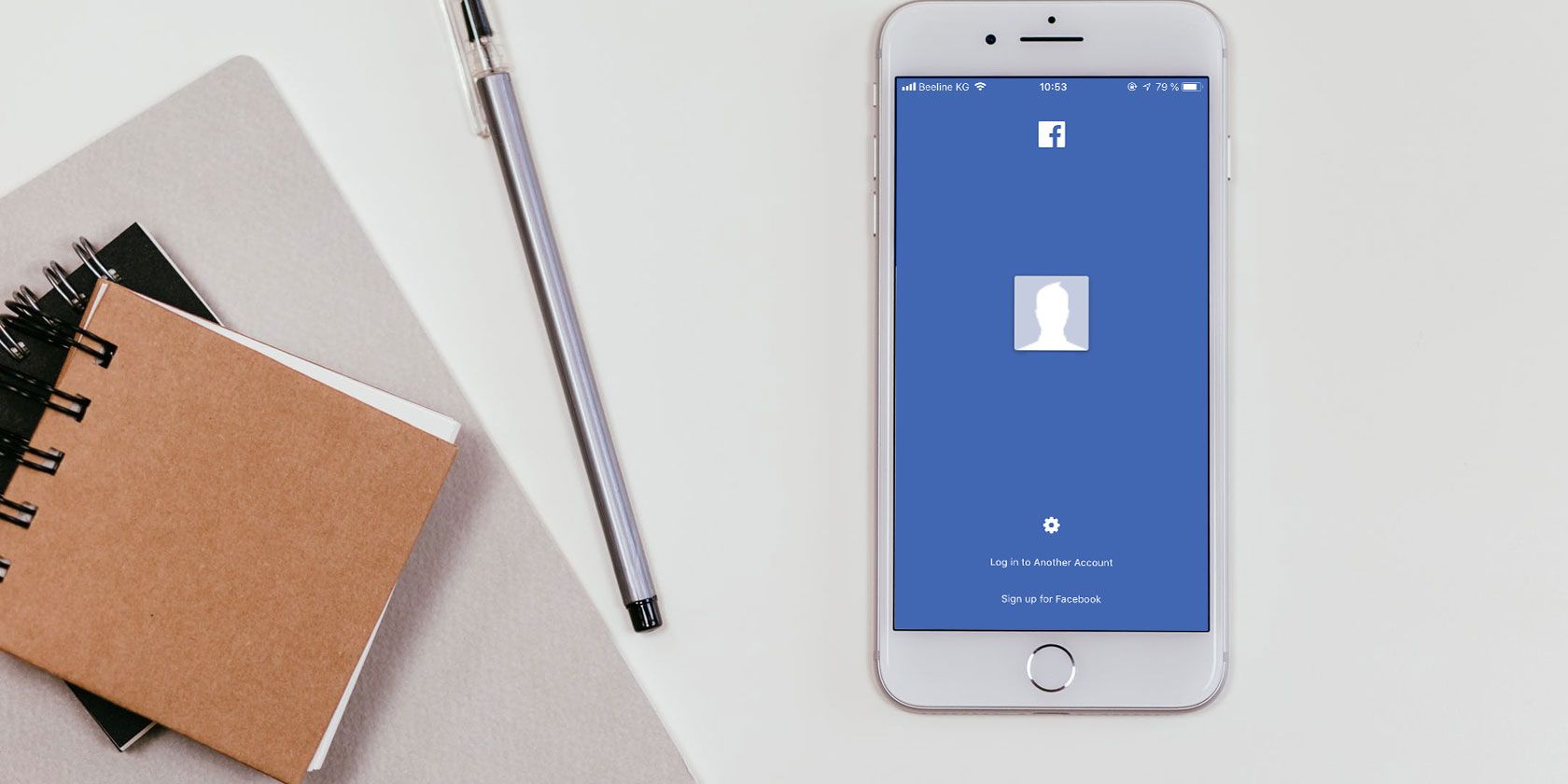
Facebook has endured several scandals in recent years, and they invariably concern the privacy and security of its users. This led to the #DeleteFacebook campaign, and you might have been tempted to delete Facebook as a result.
However, there is another option. Rather than deleting Facebook, you can just deactivate your account. But what does it mean to deactivate your Facebook account? In this article we’ll give you the facts about deactivating Facebook…
Deleting vs. Deactivating a Facebook Account
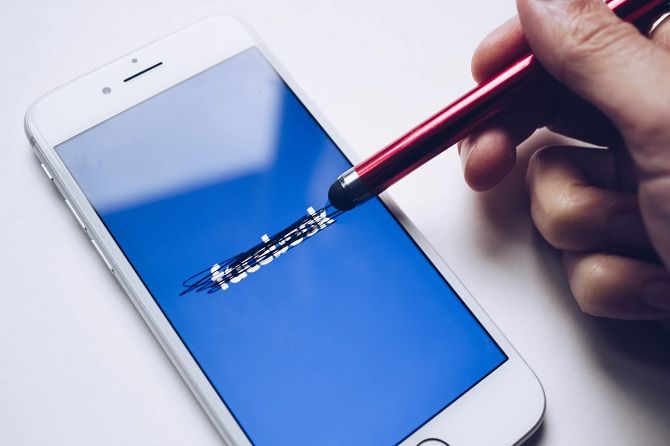
First, we need to clarify that there’s a difference between deleting and deactivating your Facebook account. They’re not interchangeable.
Essentially, deactivation is for people who aren’t completely certain they want to leave Facebook forever. If you just want to take a sabbatical from social media, deactivation is a good option, although it’s not the only one. You could merely ignore Facebook for a while without deactivating it, but that depends on how tempted you’ll be to return.
Deleting Facebook, meanwhile, is more permanent. It’s a decision not to be taken lightly; indeed, there are plenty of reasons not to delete Facebook. If you delete your account you can’t come back and expect any of your data to still be intact. There is a way to start again, but we’ll return to that later in the article.
Can People Search for Me If I Deactivate Facebook?
They can search for you, sure—you just won’t show up!
Your timeline will disappear, alongside your list of “likes”. That should happen immediately, though you’ll need to jump through a few hoops to get to that stage. Everything will be invisible.
Similarly, if you delete Facebook, your account will vanish. But full deletion won’t happen for a few days because the social network gives you some leeway. If you log back in shortly after deactivating your account, it will be automatically reactivated.
Otherwise, it takes 90 days for information on a deleted account to be removed from Facebook’s servers. Some details will still exist, but any personal identifiers will disappear. You’ll become a statistic.
Do My Comments Disappear If I Deactivate Facebook?
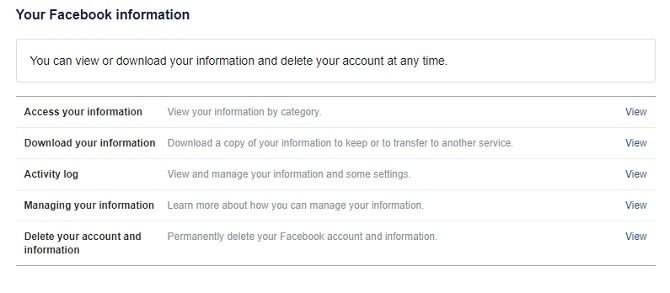
Your posts on your own timeline won’t be publicly visible, and your friends won’t be able to see them either. Your whole profile will have gone. But that doesn’t mean comments you’ve made to others will disappear too.
Facebook is obsessed with memories. It likes to make you nostalgic, and remind you of just how long you’ve used social media. It’s a way of building brand loyalty.
That’s why your comments won’t vanish. Your name will appear as plain text, as the link to your account will be broken. Your profile image will be replaced by a default icon too.
And of course, if you choose to reactivate, all those posts will revert back to normal.
What happens if you delete Facebook permanently? Facebook says your data will be erased within 3 months, but can’t guarantee that flotsam and jetsam—the comments, reactions, and posts—will be cleared.
How to Tell If Someone Deactivated Facebook
If you’re concerned that someone has been unusually quiet on Facebook, there are three options to consider. The first is that they’re simply busy. Try messaging them to check they’re OK.
Look through your list of friends. If they’re still listed, they’re probably just preoccupied. If they’re not, the second possibility is that they’ve blocked you. But before you investigate that, question whether they’ve got rid of their whole account.
So how do you know if someone has blocked you on Facebook or deactivated their account?
Go to a mutual friend’s profile and check whether the person in question is listed there. If their name is searchable, the profile still exists. Sadly, it’s very likely you’ve been blocked. Check on Messenger though; there could be a technical issue. You can’t send a message if you’ve been blocked, and their profile picture will be replaced on any comments they’ve previously posted on your timeline.
Can I Still Use Messenger Without Facebook?
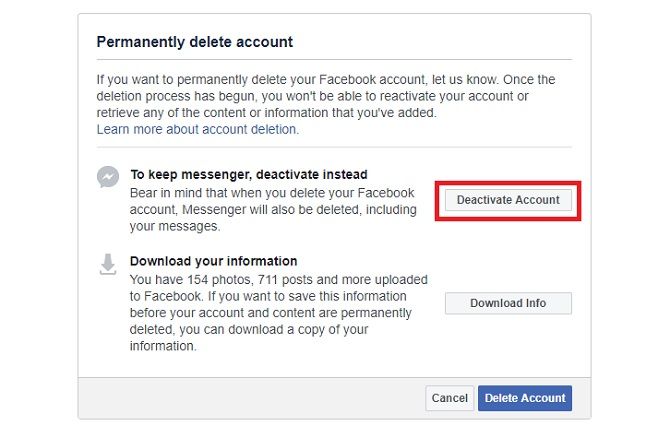
You might be worried that, by deactivating Facebook, you won’t be able to use the separate (but nonetheless connected) Messenger app. After all, they’re both owned by the same company and mine the same list of contacts. It seems Messenger cannot exist without its parent. That certainly used to be the case.
But fear not. It doesn’t actually matter if you don’t have a Facebook account: you can still use Messenger.
When you deactivate your account, Facebook will ask if you want to deactivate Messenger too. Say no, and your information on the app will be saved. Obviously, if you’d prefer to go without the instant messaging service, you can deactivate Messenger separately.
In some cases, you’ll need to reinstall Messenger after deactivation. If you delete Facebook, you’ll certainly have to sign into the app again, albeit using a slightly different method. To do this, you simply click Not On Facebook?, and add your name and phone number. Allow it access to your address book so you can keep in touch with your contacts.
Can People See My Messages If I Deactivate Facebook?
Yes, you can still use Messenger, so it follows that your messages will appear after deactivating your account. In fact, when you press “Send”, as long as you have internet access, the message will go straight to the recipient’s inbox.
However, if you delete Facebook, your previous messages will read “Facebook User”. They won’t be able to respond. Incidentally, this is the same thing that happens if you block someone.
Can You Reactivate a Facebook Account?
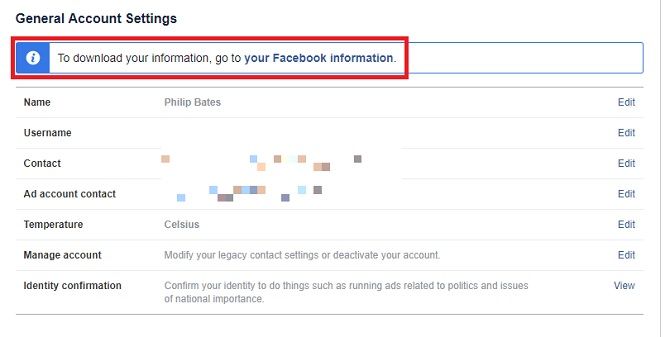
By and large, the answer is yes. But…!
If you’ve deactivated your Facebook account, all you need to do is log back in sometime. You can change your password if considerable time has lapsed and you’ve forgotten it. Your profile still exists, as does your personal information. Previous messages and comments typically reappear too.
Actually, Facebook makes it very easy to reactivate. That’s especially true if you’ve given the social network your phone number. Some users have reported getting texts from Facebook, tempting them back. Clicking on the accompanying link—even accidentally—will reactivate your profile.
Note: Don’t forget how dangerous it is to click on SMS links.
However, if you delete Facebook, you’ll need to have taken steps to prepare for your reactivation before having deleted it. The social network lets you download a copy of all the data Facebook has stored about you. That means you can get your account back up and running, although the process is a bit trickier than if you’ve merely deactivated it.
What Happens to Tagged Photos After Deactivation?
Because Facebook has saved your data for your potential return, tags in pictures will still exist. However, those tags will convert to plain text. No one can link those images to a profile (to reiterate, your profile isn’t visible to anyone). This is also true of any other posts you’ve tagged in.
If you reactivate your account, the tags will reappear as if nothing’s happened.
This is pretty much the same after deletion; tags will revert to plain text. If you open a new account, those original tags won’t link automatically with your name again. Just think of the number of people with the same name as you.
Let’s say you have deleted your profile, then regretted it, and decided to return. You’ll need to ask your contacts to remove previous tags and update them to your new profile.
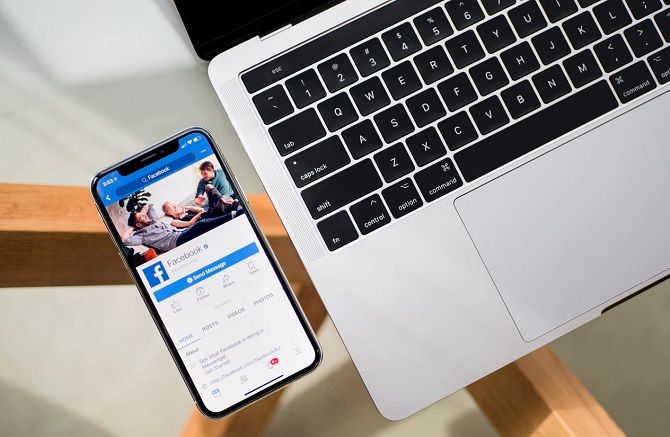
Worried about an embarrassing photo? Don’t want people identifying you even after deactivation or deletion? Don’t forget you can manually remove tags anyway—but do so before taking further steps with your account.
Should You Deactivate or Delete Facebook?
If you’re reading this because you’re not sure whether to delete or deactivate Facebook, choose the former. Why? Because you’re clearly unsure about the decision. Therefore it’s better to go for the non-nuclear option which will allow you to return one day.
Read the full article: What Happens When You Deactivate a Facebook Account?
Read Full Article
No comments:
Post a Comment